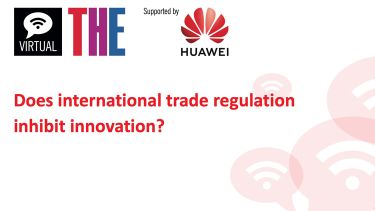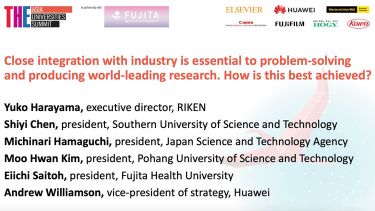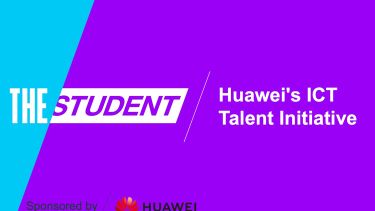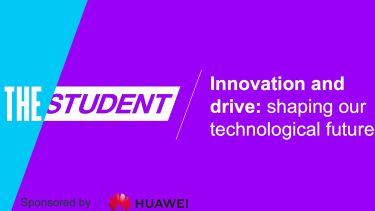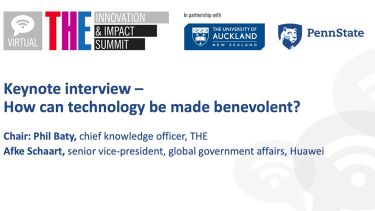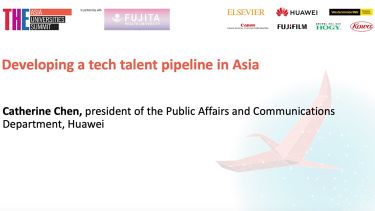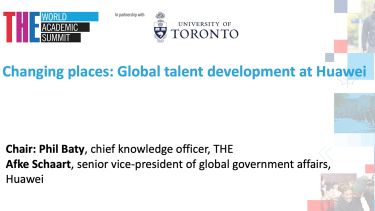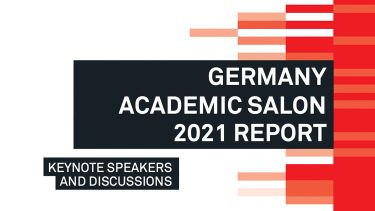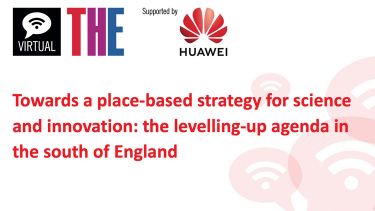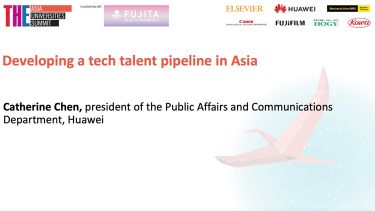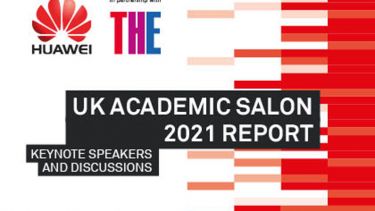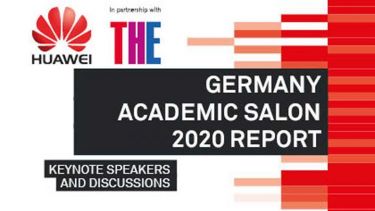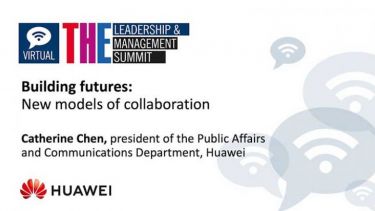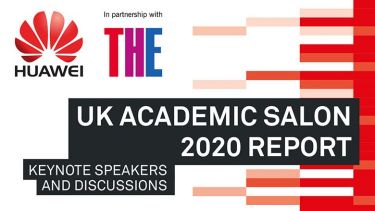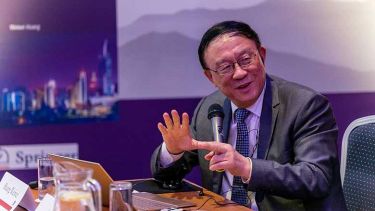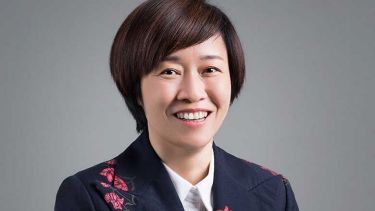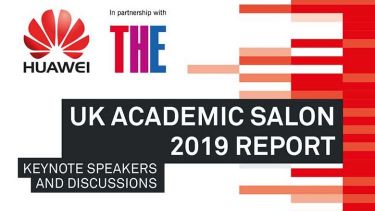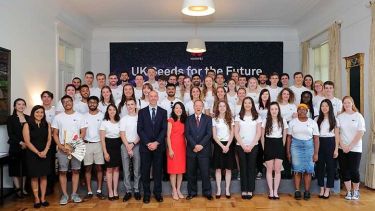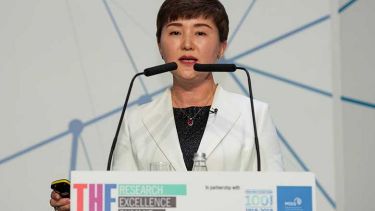At a time of growth and disruption, digital industries need to attract skilled female engineers and developers. But how can organisations ensure women consider a career in tech, and support them in that path?
With the tech industry facing an acute shortage of skills, narrowing the gender gap is more crucial than ever. This year for International Women’s Day (IWD), THE Student brought together a panel of speakers from Google, Huawei and Crayon to reflect on the opportunities and challenges ahead for female tech talent.
THE’s head of content for Student events, Jamie Ramacciotti, outlined the context: according to the World Economic Forum, gender gaps are more likely in sectors that require disruptive technical skills. Labour market data bears this out: just 14 per cent of the workforce in cloud computing is female, 20 per cent in engineering, and 32 per cent in data and artificial intelligence. On top of that, the pandemic has increased rates of automation and digitisation, creating further challenges in achieving gender parity.
Xiaoman Hu, director of operations for the Mindspore Community, as well as LF AI and data foundation outreach committee chair at Huawei, said: “For me, IWD is a special reminder to appreciate women's power and contribution every day. We can hear supportive, motivational stories of women who have reached their full potential but also reflect on how far we’ve come. It reminds us to be more committed to making the necessary structural and social changes that need to happen.”
Rameen Khan, a software engineer at cloud specialist Crayon, said that seeing female role models in tech was a turning point in her career. “I took part in Huawei’s Seeds for the Future programme when I was studying, and previously had not seen many women in lectures so was unsure. Seeing women in the IT industry, particularly in leadership positions, helped me feel comfortable in what I’d chosen for my education.”
Building networks of women inside organisations and across the industry as a whole will accelerate the journey towards equality, argued Noa Havazelet, head of Google’s Accelerator programme in Europe. “This could be people you learn with, people you connect with along the way, a university professor that always cheered you on,” she said. “It’s also important to find opportunities to apply your theory on real projects. This builds confidence as you see something come to life, but also gives you something to show a prospective employer.”
The panel agreed that men have a vital role in amplifying women’s voices in the tech industry. “Let’s speak up and call for more allies – only 25 per cent of self-employed tech professionals are female and only 10 per cent of patent applications come from women,” said Hu.
Havazelet added: “In the tech industry, the majority of people are men and they tend to hire people similar to them. Instead, they need to ask how diversity can benefit all of us. It can help us surface solutions we might never have thought of otherwise.”
Finally, organisations need to take action to address the gender gap much earlier than they do currently. Google runs a programme called Mind the Gap, for example, that works with schools to raise the visibility of female role models in tech. “If we can bring more female students on board to see female engineers and be inspired, that addresses some of the fears. Otherwise, they think, ‘if I can’t see it, I can’t be it’,” Havazelet concluded.
The panel:
- Noa Havazelet, head of Google Accelerator, Europe, and developer relations regional lead of UK and Ireland, Google
- Xiaoman Hu, director of operations, MindSpore Community, LF AI and data foundation outreach committee chair, Huawei
- Rameen Khan, software engineer, Crayon
- Jamie Ramacciotti, head of content, Student events, Times Higher Education (chair)
Watch the session on demand above or on the THE Connect YouTube channel.
Find out more about Huawei and higher education.


